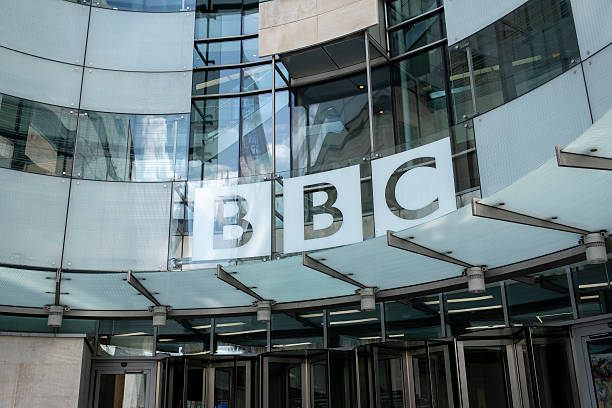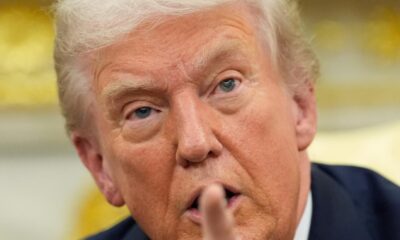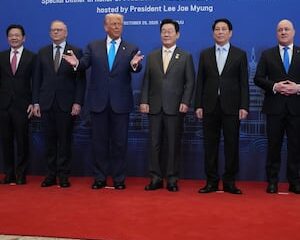Politics
BBC Leadership Resignations Highlight Media Trust Crisis

The recent resignations of two senior executives at the BBC, the Director General and the head of news, have sparked significant concern regarding media integrity and public trust. This scandal, arising from accusations of bias in reporting, underscores a broader issue affecting mainstream media outlets across the English-speaking world.
The controversy began when it was revealed that the BBC had edited segments of a speech by Donald Trump, creating the impression that he encouraged his supporters to act violently. Additionally, the decision to employ the son of a Hamas official as a voice for a documentary about Gaza has drawn intense scrutiny. These actions have prompted questions about the BBC’s commitment to impartiality, which many media organizations typically rely upon without further verification.
As audiences increasingly consume information from various sources, the implications of this scandal extend beyond the BBC. Many media outlets, including those that pride themselves on their objectivity, often cite BBC reports without further scrutiny, leading to a potential dissemination of biased information. This interconnectedness means that if the BBC’s credibility is compromised, it can tarnish the reputation of other media organizations that use its content.
Critics argue that the BBC’s handling of reporting on contentious issues—such as the Israeli-Palestinian conflict, gender identity, and political figures—has contributed to a growing distrust in the media at large. The recent revelations have confirmed suspicions among audiences that the media may not be presenting a balanced narrative, particularly regarding Trump and Hamas.
The scandal was propelled into the spotlight by a whistle-blower’s dossier, which was leaked last week. This document detailed various instances of perceived bias within BBC reporting, raising serious concerns about the organization’s editorial integrity. It was only after substantial public outcry and a year of internal inaction that the BBC took decisive steps, resulting in the recent resignations.
The fallout from this incident highlights a critical juncture for media organizations. As trust in traditional news outlets continues to dwindle, the challenge remains for the BBC and others to rebuild their credibility. The implications of this scandal are far-reaching; it signals a pressing need for transparency and accountability within media institutions.
With the media landscape evolving rapidly, the actions of the BBC serve as a cautionary tale. As audiences grow increasingly discerning about the sources of their information, media organizations must prioritize integrity to regain public trust. The events of recent days are a reminder that the health of the media ecosystem relies on the honest reporting of facts, free from bias.
In conclusion, if organizations like the BBC cannot address these issues effectively, the road to restoring confidence in media as a whole will be arduous. The stakes are high not just for the BBC, but for all media outlets that draw upon its content to inform and engage the public.
-

 Sports2 months ago
Sports2 months agoNetball New Zealand Stands Down Dame Noeline Taurua for Series
-

 Entertainment2 months ago
Entertainment2 months agoTributes Pour In for Lachlan Rofe, Reality Star, Dead at 47
-

 Entertainment1 month ago
Entertainment1 month agoNew ‘Maverick’ Chaser Joins Beat the Chasers Season Finale
-

 Sports1 week ago
Sports1 week agoEli Katoa Rushed to Hospital After Sideline Incident During Match
-

 Sports2 months ago
Sports2 months agoSilver Ferns Legend Laura Langman Criticizes Team’s Attitude
-

 Politics1 month ago
Politics1 month agoNetball NZ Calls for Respect Amid Dame Taurua’s Standoff
-

 Entertainment2 months ago
Entertainment2 months agoKhloe Kardashian Embraces Innovative Stem Cell Therapy in Mexico
-

 Sports6 days ago
Sports6 days agoJamie Melham Triumphs Over Husband Ben in Melbourne Cup Victory
-

 World3 months ago
World3 months agoPolice Arrest Multiple Individuals During Funeral for Zain Taikato-Fox
-

 Sports3 months ago
Sports3 months agoGaël Monfils Set to Defend ASB Classic Title in January 2026
-

 Entertainment1 month ago
Entertainment1 month agoTyson Fury’s Daughter Venezuela Gets Engaged at Birthday Bash
-

 Sports1 month ago
Sports1 month agoHeather McMahan Steps Down as Ryder Cup Host After Controversy





















